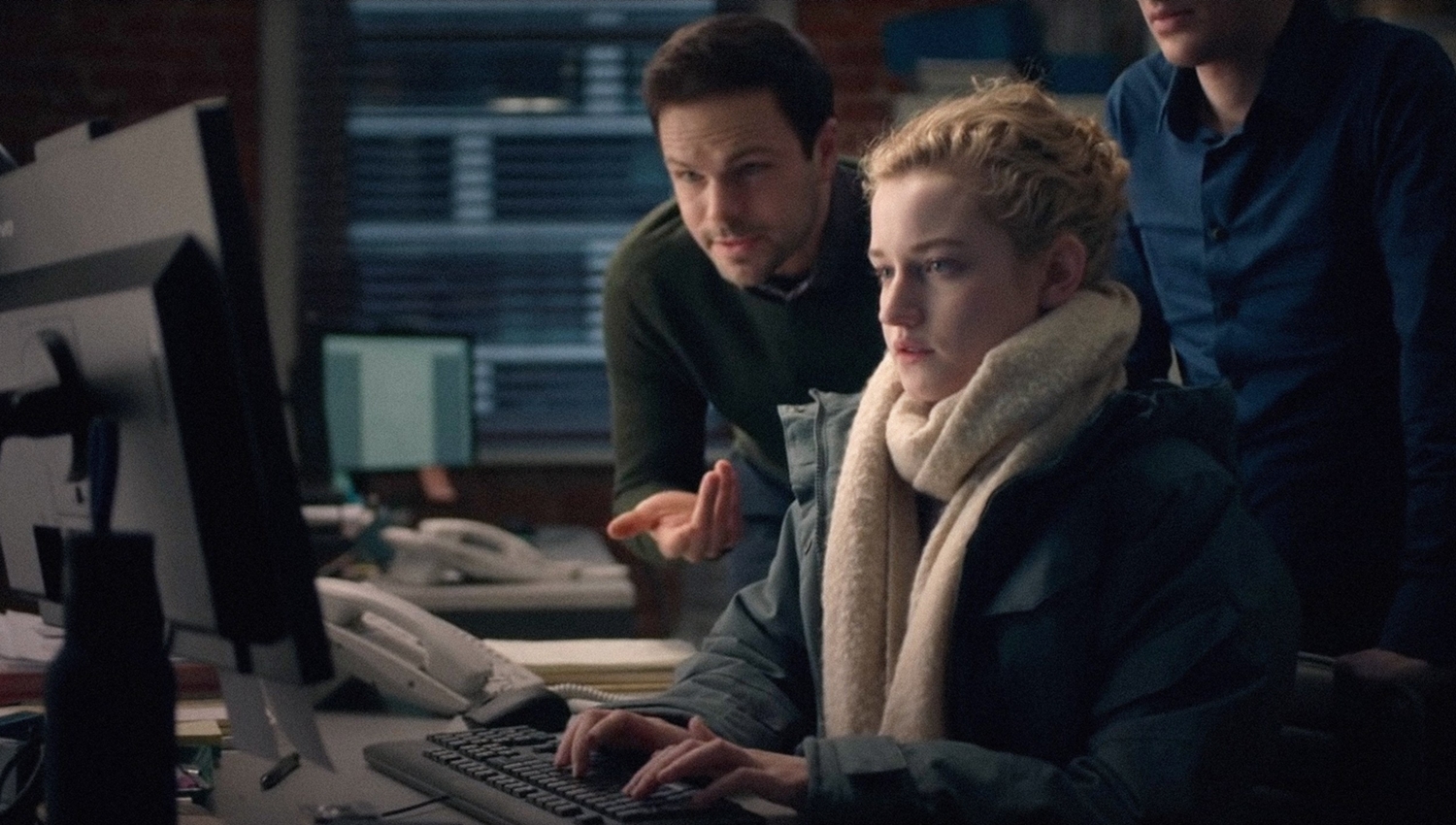
The Assistant
Dustin Chase
A shell of a movie, that’s what documentarian turned feature film director Kitty Green has delivered with The Assistant. What should have been a short film, is prolonged into an excruciating 85 minutes that Emmy Winner Julia Garner (Ozark) can’t steer on her own. Green’s story about a woman working in a film production/distribution company is an obvious illusion to Harvey Weinstein. However, the film expects the audience to infer much of what’s happening and who these people represent. The Assistant is a direct response to the #MeToo movement, meaning it wouldn’t exist otherwise, certainly something like this wouldn’t get distribution. Produced on a shoestring budget, it’s a day-in-the-life-of, following one person around an office all day, navigating the demands of male authority and abuse of power. The Assistant viewed in theaters, will likely put you to sleep, watching at home, as least you can yell at the screen.
It’s still dark outside when Jane (Garner) gets to work. Her day starts around 5am, turning on lights, prepping her bosses office, picking up a hoop earring off the floor. Jane is young, impressionable, but not stupid. She graduated from Northwestern and has ambitions of being a film producer. That’s why she is here, working for one of the most powerful men in independent cinema. Throughout the day she will answer calls from his irate wife, accompany young girls to hotels, and make excuses for “him” when office of professionals show up for a meeting. It’s also not uncommon to write a handful of apology emails throughout the 12 hour work day. “I am sorry I have let you down…. Thank you for the continued opportunity to work here,” it might read.
The Assistant is a fractured glimpse into a very realistic world, which is why I think with an already crippled audience reach, it might have been more powerful as a short film.
Having an understanding of how production houses work, the interworking’s of a film company, as a film journalist, I was easily able to fill in the blanks. Jim-Bob from North Dakota who has no idea, won’t have it so easy with all the required reading between the lines. The Assistant is therefore reduced to a very small audience. It expects a lot of it’s viewers, a growing trend of late that continues to marginalize general audiences. Or perhaps my understanding of office life isn’t what I think it is, making phrases “He is in a personal” (meaning he is in a personal meeting), sound completely ludicrous. A scene where Jane visits the company’s human resources officer (Matthew Macfadyen in a cameo) to report her boss, is the most universally realistic moment in the film.
As we watch Garner internalize Jane’s feelings for 85 minutes, more goes unsaid than there is dialogue to convey. This is a heavy burden on the actress, to which she offers a believable and realistic portrayal. One of the phrases you might inevitably find yourself saying to your screen is simply, “why doesn’t she leave?”. The answer of course is the inferred, “because he hired her knowing she is the kind of woman who will take the abuse because she wants her career so bad”. The Assistant is a fractured glimpse into a very realistic world, which is why I think with an already crippled audience reach, it might have been more powerful as a short film. There is a big difference between laying everything out for an audience like a Disney movie, compared with something like The Assistant, where you have to bring in prior knowledge to connect the dots.
Final Thought
The Assistant is an emaciated film where the audience is required to infer much about the plot, knowledge about the subject matter is a prerequisite.
